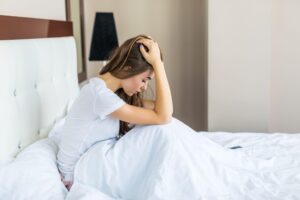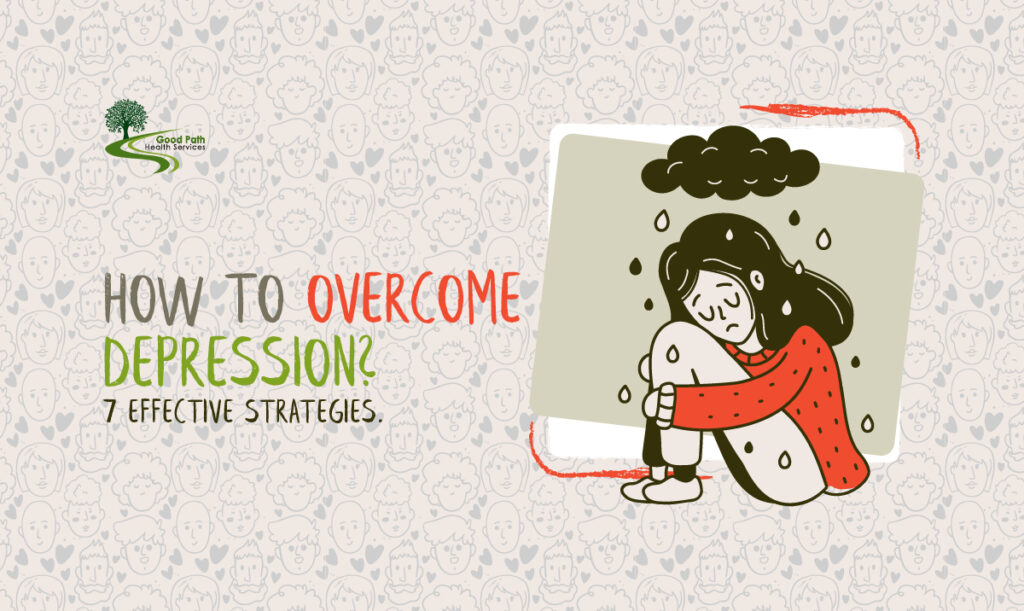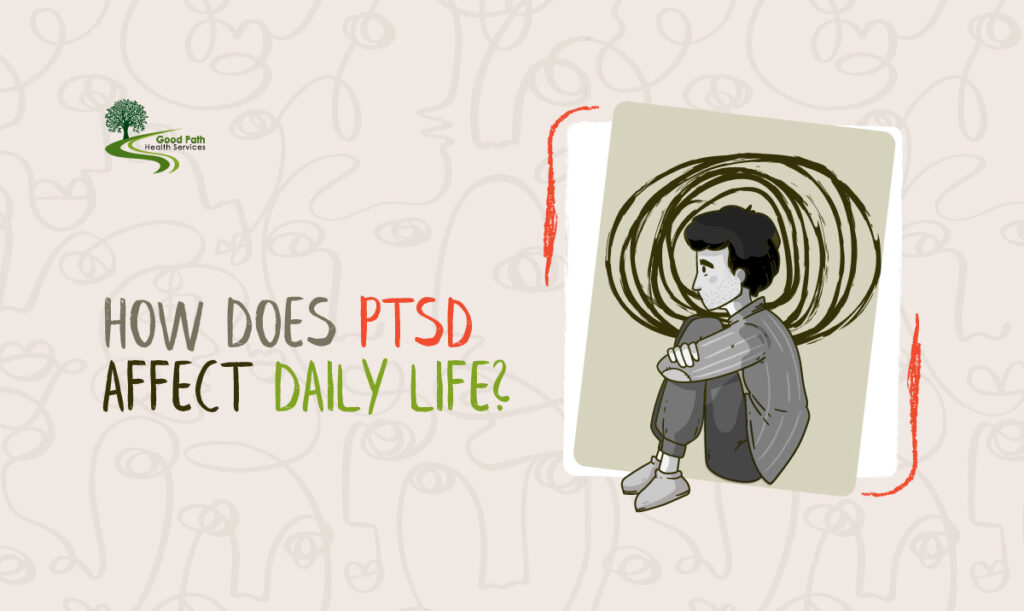
Have you ever found yourself tossing and turning, unable to fall asleep no matter how tired you are?
Insomnia can be a frustrating and exhausting experience and can harm your overall health.
But did you know that sleep apnea can sometimes be the reason behind insomnia symptoms?
In this blog post, we’ll examine the link between sleep apnea and insomnia.
Also, we will address the question, “Can sleep apnea cause insomnia?” and explain how one can lead to the other.
Let’s get right into it.
An Overview of Sleep Apnea
Let’s begin by understanding sleep apnea itself.
Sleep apnea is a sleep disorder that causes pauses in breathing or shallow breaths during sleep.
These interruptions can happen multiple times throughout the night and cause fragmented and poor-quality sleep.
Common causes of sleep apnea can be physical obstructions in the airway or a inability of the brain to direct the muscles to breathe normally.
Can Sleep Apnea Cause Insomnia?
Yes, the disturbed sleep patterns caused by sleep apnea can cause the onset of insomnia.
That’s because constantly waking up during the night and struggling to sleep continuously can bring sleep fragmentation and a decrease in overall sleep time.
It causes symptoms of insomnia, like difficulty falling asleep, staying asleep, or getting up too early.
The combination of sleep apnea and insomnia can create a continuous cycle — sleep apnea interrupts sleep, causing insomnia, and insomnia worsens sleep apnea symptoms.
Research from NIH shows that these two conditions often occur simultaneously.
Sleep Apnea vs Insomnia – What’s the Difference Between Sleep Apnea and Insomnia?
Even though sleep apnea and insomnia can coexist, they are both separate sleep disorders with different origins.
The difference between insomnia and apnea is that they are distinct in their symptoms, causes, and treatment approaches.
As we’ve discussed, sleep apnea refers to the physical obstruction of the airway during sleep — which causes brief pauses in breathing.
These disruptions can cause:
- Loud snoring.
- Gasping.
- Recurring awakenings, leaving you with daytime fatigue and morning headaches.
Alternatively, insomnia causes problems in falling asleep, staying asleep, or both, despite ample opportunity to sleep.
It does not involve breathing problems like sleep apnea.
Symptoms usually include:
- Inability to fall asleep.
- Waking up multiple times during the night.
- Waking up too early in the morning.
- Feeling tired after waking up.
The main difference between the two comes down to their root cause.
Sleep apnea is a physical condition, associated with a person’s obesity, age, or the structure of one’s airway.
Whereas insomnia can be a primary or a secondary condition, and can originate from stresses or anxiety, or physiological issues such as chronic pain or hormonal changes.
Treatment for sleep apnea usually involves therapies like CPAP or lifestyle changes to manage weight and sleep position.
Insomnia is treated with cognitive-behavioral therapy, sleep medications, or lifestyle adjustments that improve sleep hygiene.
Knowing the differences between these two disorders helps in finding appropriate treatment to restore sound sleep.
Recognizing Symptoms of Insomnia Caused by Sleep Apnea
There are some symptoms that indicate sleep apnea-induced insomnia.
These might include:
- Excessive daytime sleepiness.
- Irritation.
- Loud snoring.
- Difficulty concentrating.
- General sense of unrefreshing sleep.
Consult a healthcare professional if you suspect that you have sleep apnea underlying your insomnia.
Reach out to Good Path Health Services for an evaluation.
Treatment Options for Sleep Apnea and Insomnia
Fortunately, sleep apnea and insomnia are both treatable and manageable.
For sleep apnea:
- Medical treatments like continuous positive airway pressure (CPAP) therapy can help keep the airway open while sleeping.
- Lifestyle changes, like maintaining a healthy weight and staying away from alcohol and sedatives, would also have a positive impact.
For insomnia:
- Cognitive-behavioral therapy for insomnia (CBT-I), which focuses on improving sleep habits and resolving negative thought patterns around sleep.
- Aside from that, a good sleep hygiene, e.g., creating a regular bedtime routine and setting up a pleasant sleeping environment, can also help a lot.
There are also natural remedies and alternative treatments, like relaxation exercises and herbal supplements.
They might provide extra help for both sleep apnea and insomnia.
As always, it’s important to discuss these options with a healthcare professional before including them in your treatment regimen.
Final Word
Can sleep apnea cause insomnia? Yes, it can.
Sleep apnea and insomnia can be very damaging to our health.
You should get proper diagnosis and treatment if you suspect either or both of these conditions are affecting you.
When we treat sleep apnea and insomnia, we can prioritize our sleep health, improve our lives, and sleep more peacefully.
Sleep, after all, should be restful and restoring — not a nightly struggle of tossing and turning.
Consult with a healthcare professional at Good Path Health Services, explore treatment options, and sleep well.
Your mind and body will thank you.
FAQs
Can I get insomnia treatment online?
Yes, there are several platforms that provide telemedicine services for insomnia.
These websites offer access to healthcare professionals who can:
- Diagnose your condition.
- Provide therapy for insomnia (CBT-I).
- They can even prescribe medications if necessary.
To get telehealth care and treatment for insomnia, please reach out to us at Good Path Health Services.
Can I consult with an insomnia doctor online?
Yes, many healthcare platforms provide online consultations with sleep specialists who can diagnose and treat insomnia.
You can manage your sleep issues conveniently with an online consultation.
How do I find an insomnia therapist near me?
You can search online directories of certified sleep therapists, ask your PCP for a referral, or use online platforms that offer therapy services.
Is Zoloft insomnia temporary?
Insomnia is a common side effect of Zoloft (sertraline), and it’s usually temporary.
Most people’s sleep patterns return to normal once their body adjusts to the medication.
If you continue to experience insomnia after several weeks, consult your doctor.
Can anorexia cause insomnia?
Yes, anorexia can affect sleep because of nutritional and hormonal imbalances.
Does insomnia cause nausea?
Insomnia itself won’t cause nausea directly, but the stress and anxiety associated with a lack of sleep can.
Are there any plants for insomnia and sleep apnea that can help?
Plants like lavender and chamomile are known for their calming effects on sleep.
Although they might help with insomnia, they won’t treat sleep apnea.
For sleep apnea, medical treatments and lifestyle changes are necessary.
Is there a good insomnia ritual I should adopt?
Yes, there can be many.
- Go to bed and wake up at the same time every day — even on weekends.
- Limit stimulants.
- Avoid napping too close to bedtime.
- Reduce your screen time before bed.
- Create acozy and calming bedtime routine.
- Use white noise or calming sounds if your environment is noisy.
- Make your room comfortable, dark, and cool.
- Do gentle stretching, listen to calming music, or practice mindfulness before going to sleep.
Rituals like these, usually part of good sleep hygiene, can help you get a more restful sleep.
Does insomnia qualify for disability?
In some cases, insomnia that is severe and chronic can qualify for disability benefits.
But assessments are necessary for qualifying for disability benefits.
How can I end the insomnia struggle?
If insomnia is severely affecting your life and nothing seems to make it better, please find professional support to get treatment options.



